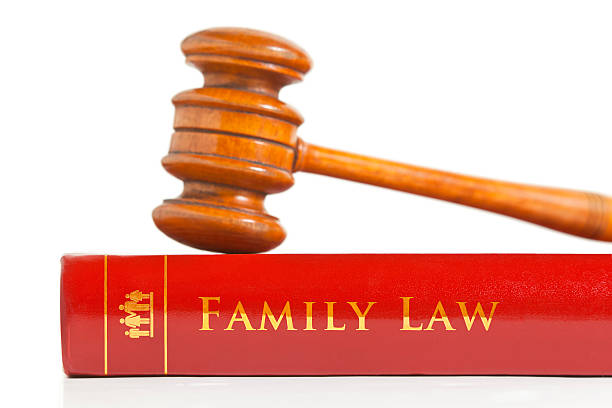Proceeds of crime and forfeiture and family law may cause conflicts about possessions among family members or couples. This commonly happens in cases that involve a legitimate owner of an asset, their ex-spouse, and the authorities in charge of enforcing confiscation laws.
For instance, a husband owns a vehicle and a motorcycle and was convicted of drug abuse. Authorities may confiscate this asset if a crime is proven to be true. The Proceeds of Crime Act of 2002 (the Act) was enacted on October 11, 2002, and it was made effective on January 1, 2003. This Act deals with the recovery and seizure of money obtained via illegal activity and money laundering.
It covers both the investigations into the offences as well as the seizure and return of assets, money, and property that have been obtained unlawfully. It’s also important to note that proceeds of crime and forfeiture are mentioned in the Family Law Act 1975. But, how does this relate to family law? Read on to find out more.
Section 90VA: Notification of Proceeds of Crime
According to Section 90VA of the Family Law Act, a person must disclose in proceeds of crime order and forfeiture application if:
- The person makes an application for an order with respect to either one or both of de facto partners or the maintenance of the de facto partner’s property. De facto partners are couples who are living together for at least 2 years but are not married. The person knows that a de facto partner’s property is lodged with proceeds of crime order or forfeiture application.
A person who does not comply with these disclosures commits a punishable offence, on conviction, will receive a fine not exceeding 50 penalty units. A person must notify the Registry Manager in writing of the proceeds of crime order or forfeiture application and its copy if a person is:
- A party to de facto property settlement or maintenance proceedings
- Informed that the property of the parties to the de facto relationship belongs to the profits of crime authorities or forfeiture application
Proceeds of Crime and Forfeiture: Where Do Proceeds of Crime Go?
The Australian Financial Security Authority (AFSA) maintains the Confiscated Assets Account on behalf of the Commonwealth. It contains all confiscated money as well as the proceeds from the sale of assets that have been seized. Following the Minister’s approval, the money is then dispersed around Australia through a variety of programmes, such as:
- Neighbourhood-level crime prevention
- Law enforcement
- Drug treatment
- Deterrent measures
The Australian Government also has the option to approve the sharing of money that has been confiscated with both local and international nations. This is in appreciation of their efforts to cooperate on joint investigations or the prosecution of illicit behaviour.

Different Types of Asset Forfeiture Orders
1. Restraining Order
A restraining order forbids someone from disposing of the specified property, interfering with it, or trying to do so. While a request for an asset forfeiture order is being processed, a restraining order is still in effect. The NSW Crime Commission may ask the Supreme Court for a restraining order pertaining to a specific piece of property.
2. Asset Forfeiture Order
An asset forfeiture order requires any property that is the subject of the order to be given to the state. The NSW Crime Commission may ask the Supreme Court for an asset forfeiture order pertaining to particular property interests, much like a restraining order.
3. Proceeds Assessment Order
If a proceeds assessment order is made, the person is required to pay the NSW Treasurer a sum that the Supreme Court determines. This amount adequately represents the value of the proceeds received from illegal activity.
4. Unexplained Wealth Order
The Crime Commission may request an unexplained wealth order. This requires a person to pay the Treasurer money equal to the value of the person’s unexplained wealth.
5. Monitoring Orders
A monitoring order requires a financial institution to provide the NSW Crime Commission with information on transactions. It is illegal to withhold transaction details when a monitoring order has been issued. The maximum fine for this offence is 1,000 penalty units.
Section 90VB: Proceeds of Crime Order That Affect Property or Maintenance Proceedings
According to section 90VB regarding proceeds of crime and forfeiture, procedures for property settlement or maintenance must be stayed (delayed) if a court receives notice under section 90VA. The court may also ask or order the proceeds of crime authorities to submit arguments in support of the delay.
The court must halt any de facto property settlement or maintenance procedures under this Part upon the application of the proceeds of crime authorities. This is if the property of the parties to the de facto relationship, or either of them, is covered by any proceeds of crime order and forfeiture applications.
The court shall notify the proceeds of crime authority if a court suspends de facto property settlement or maintenance proceedings. Proceeds of crime authority are defined in Section 4C of the Family Law Act. The proceeds of crime authority must notify the Registry Manager if:
- Proceeds of crime order cease to be in force
- A forfeiture application is finally determined. A forfeiture application is considered to have been decided in full when the application is withdrawn, successful, or unsuccessful. A successful forfeiture application is the result of a forfeiture order coming into force. While an unsuccessful forfeiture application is a result of the passing of the time for filing an appeal. This includes appeals that have been resolved or otherwise dealt with.
Section 90VC: Lifting a Stay
According to section 90VC regarding proceeds of crime and forfeiture, the court must completely or partially lift the stay (delay) if any of the following occurs while the de facto property settlement or maintenance procedures are still pending:
- The proceeds of crime authority agree to an application from either party to the proceedings to have the stay lifted
- The proceeds of crime authority submit a request to have the stay lifted
A court that halted the de facto property settlement or maintenance procedures under section 90VB may do so entirely or in part on its own motion. This is if the proceeds of crime authority agree to such a motion. Sending the Registry Manager written notice of the proceeds of crime authority’s approval under this section is deemed to be giving consent unless the court requires the authority to appear in court. Either the authority or a party to the proceedings may provide the notice.
Section 90VD: The Proceeds of Crime Authority’s Intervention
According to Section 90VD regarding proceeds of crime and forfeiture, the proceeds of crime authority may intervene in any:
- De facto property settlement or maintenance case when a court is notified under section 90VA; or
- Case under section 90VB or 90VC where the authority is not already a party
The proceeds of crime authority are deemed to be a party to the proceedings with all the rights, obligations, and liabilities of a party if it steps in.

Importance of Seeking Legal Advice
JB Solicitors can aid in proceeds of crime and forfeiture in family law matters. Indeed, it is difficult when different authorities and government agencies are involved in crime proceedings.
Moreover, partners who are involved in these kinds of matters may find it difficult to defend themselves in court. This is why our team is ready to represent clients in court in times when they need it the most.
Contact us today for more information about proceeds of crime and forfeiture in family law matters
